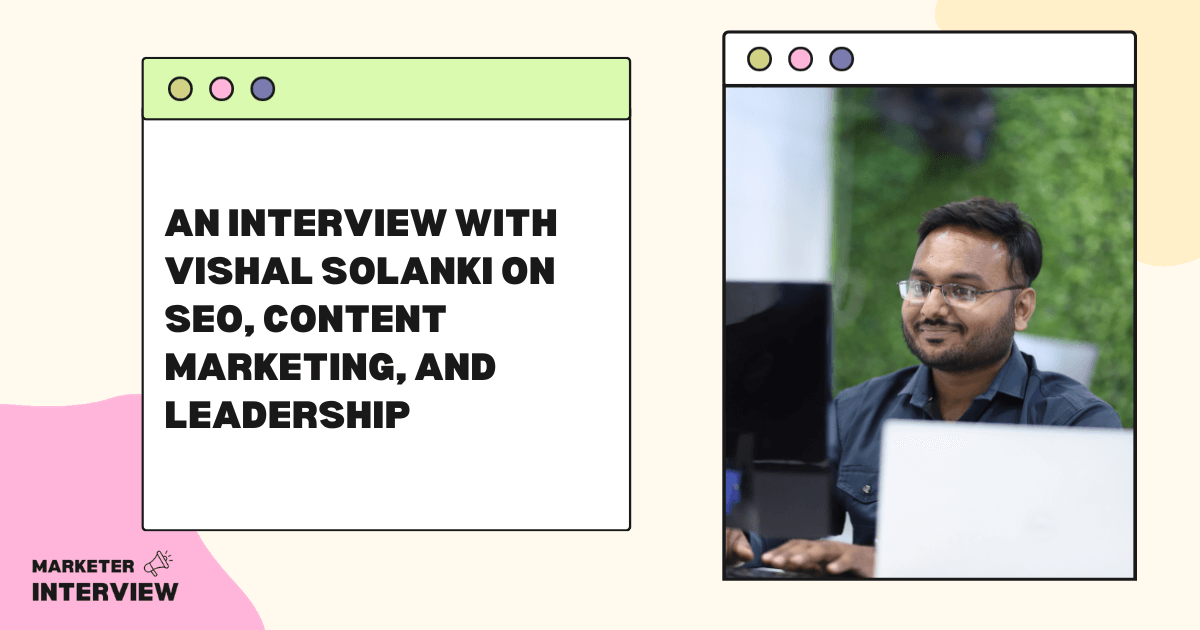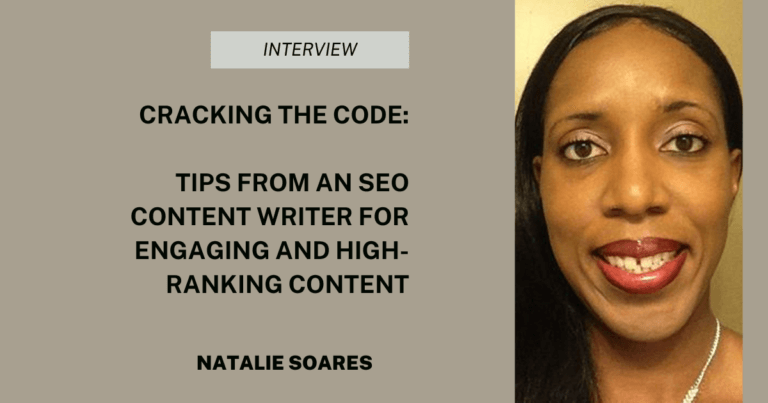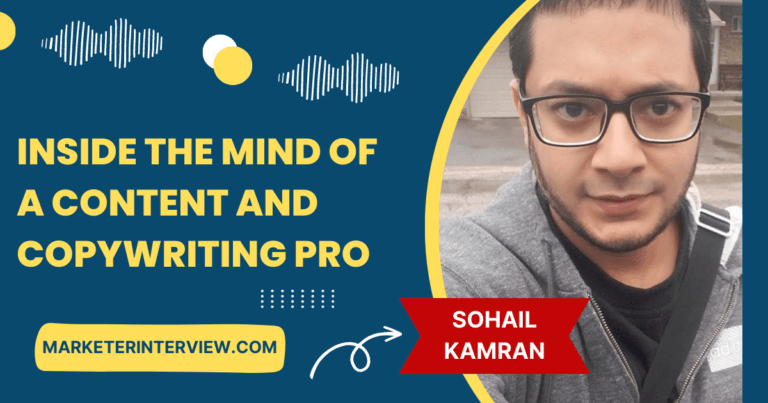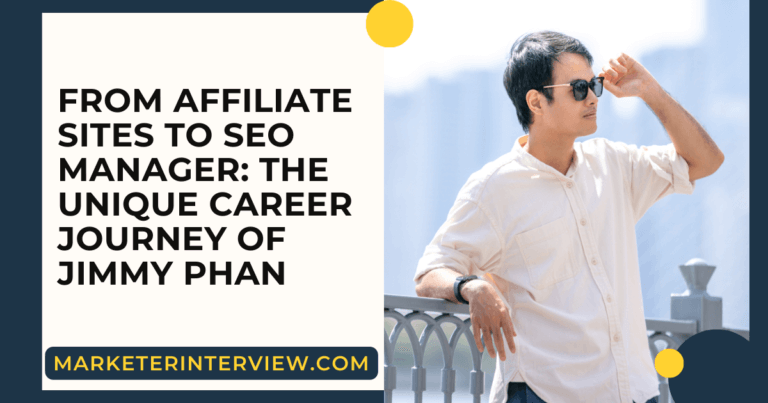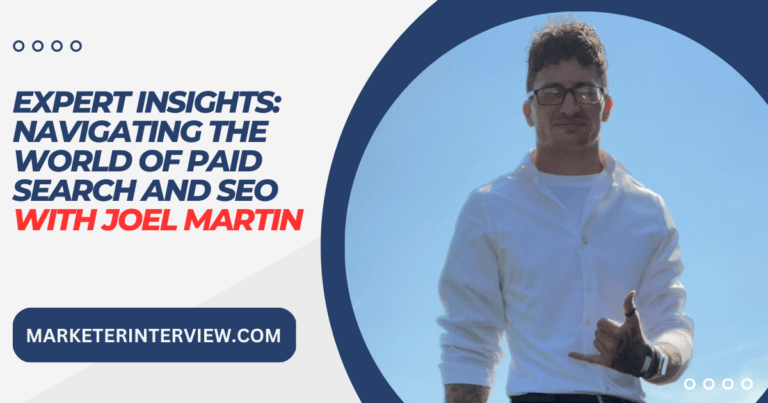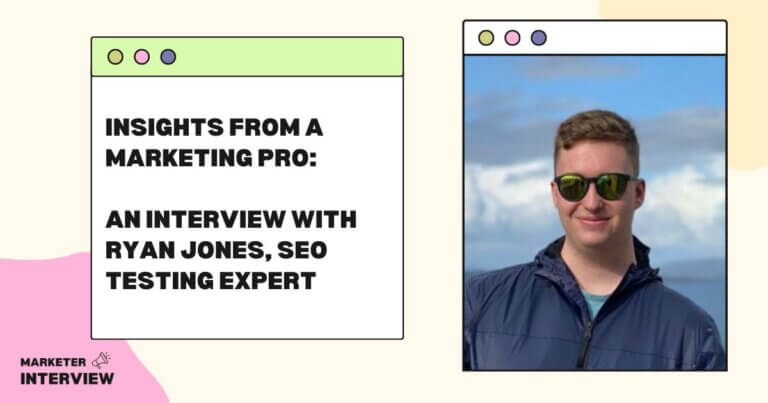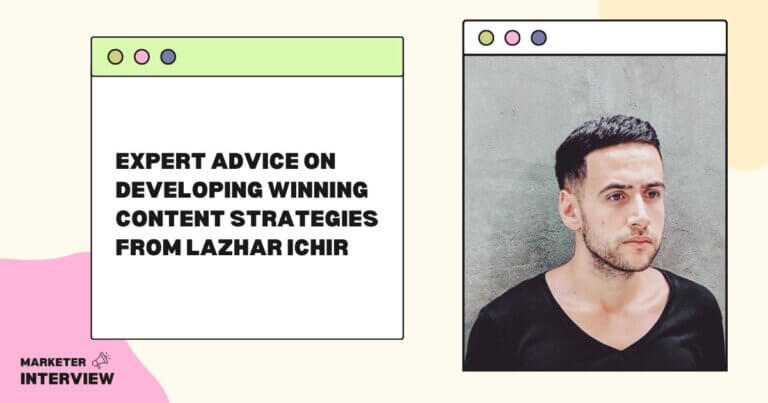An Interview with Vishal Solanki on SEO, Content Marketing, and Leadership
Welcome to another exciting edition of Marketer Interview!
Today, we’re delighted to have Vishal Solanki as our featured guest. With a prosperous SEO and content Marketing background and a passion for effective leadership, Vishal has been instrumental in crafting and executing digital strategies that yield concrete results.
Join us as we unravel the insights and experiences that have propelled Vishal’s career forward.
Contents
- 1 Can you share the story of how you entered the world of marketing? What sparked your interest in this field?
- 2 Transitioning into a leadership role is a significant milestone. How did you hone your leadership skills, and what advice do you have for those stepping into leadership positions within the marketing realm?
- 3 SEO and content marketing are your areas of expertise. How have you seen these disciplines evolve over your career, and what key strategies do you find most effective today?
- 4 Staying updated in the ever-changing landscape of digital marketing is crucial. Please share some resources or strategies you rely on to keep your skills and knowledge sharp.
- 5 Measuring the impact of marketing efforts is essential. What metrics do you consider most valuable when gauging the success of an SEO or content campaign?
- 6 Collaboration often fuels innovation. How do you foster a collaborative environment within your marketing teams to encourage creative ideas and strategic thinking?
- 7 With your experience in mentoring and developing marketing professionals, what essential qualities do you look for when building a high-performing marketing team?
- 8 Could you share a challenging situation you encountered in your career and the strategies you employed to overcome it?
- 9 Tools and software play a pivotal role in modern marketing. Can you highlight a few go-to tools that have become integral to your daily workflow and why they’re essential?
- 10 As the digital landscape evolves, what predictions do you have for the future of SEO and content marketing, and how do you prepare yourself and your team for these changes?
My story began almost 10 years ago when I was fresh out of college and looking for job opportunities on Job Search Portals. While searching with freelance portals, I came across a job posting for a Search Engine Optimization Specialist.
After the initial research, I got intrigued by the idea of how search engines ranked content for the queries entered by users.
My curiosity led me to explore the world of SEO and digital marketing, and I quickly became enamored with the art and science of optimizing websites for search engines.
Driven by this insatiable curiosity, I embarked on a quest to unravel the mysteries of SEO. The idea that I could influence businesses’ online presence and help them reach their target audience meaningfully was exhilarating.
As the years went by, my fascination with digital marketing deepened. I realized that SEO was just one piece of the puzzle. Content marketing, in particular, captivated me. I saw it as the bridge between businesses and their audiences, a medium through which valuable information, solutions, and stories could be shared.
Marked by a growing passion for driving tangible results for clients, I learned that it wasn’t just about optimizing websites; it was about crafting compelling narratives, understanding audience needs, and strategically guiding businesses toward success in the digital realm.
My current position is Marketing Team Leader at NITSAN (TYPO3 Agency), a super proud team with expertise in digital marketing, where we achieve new highs with our dedication and teamwork.
This digital journey of mine has been filled with continuous learning, evolution, and a deep-seated passion for effective leadership in the ever-evolving landscape of digital marketing.
Transitioning into a leadership role is a significant milestone. How did you hone your leadership skills, and what advice do you have for those stepping into leadership positions within the marketing realm?
Transitioning into a leadership role was a natural progression in my career.
My initial internship started with an MNC company to hone my leadership skills, where I gained hands-on practical experiences under my senior guide. Apart from this, I invested money and time in learning from various successful leaders, attended leadership workshops, and sought mentorship from experienced marketers such as Neil Patel, Aleyda Solis, Brian Dean, etc.
I even read many articles, watched countless webinars, and experimented with various optimization techniques. From the experience I’ve gained, I advise those stepping into leadership positions to lead by example. Foster a culture of continuous learning, and always prioritize the growth and well-being of your team members.
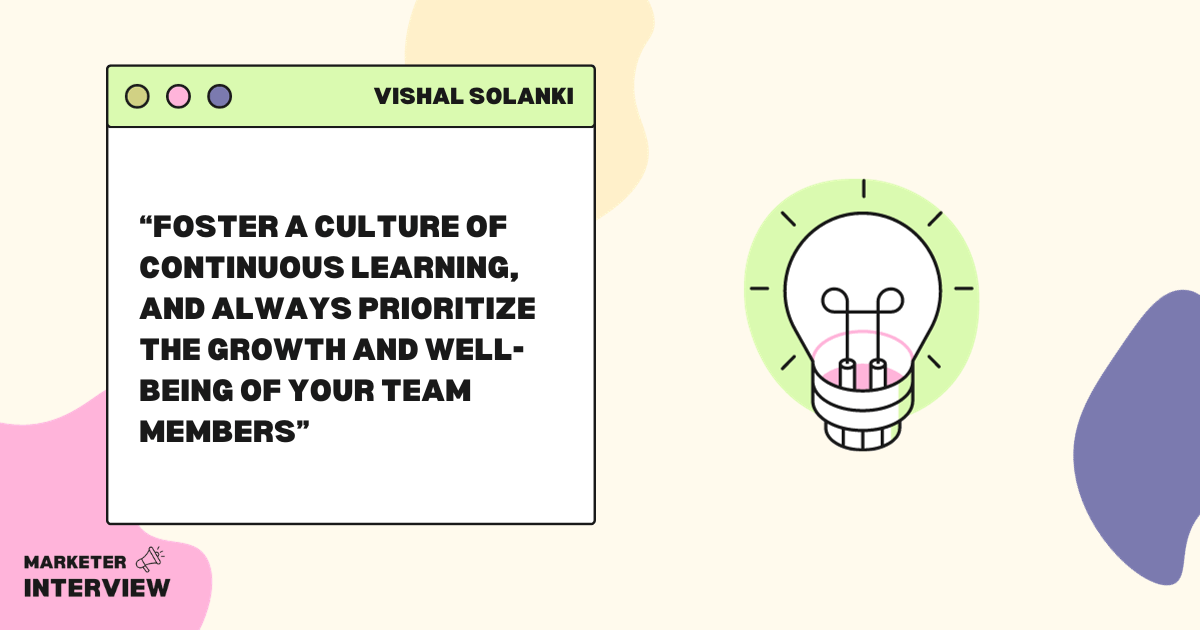
SEO and content marketing are your areas of expertise. How have you seen these disciplines evolve over your career, and what key strategies do you find most effective today?
SEO and content marketing have evolved significantly over the years. The most significant change I’ve experienced is the shift towards user-centric content and understanding the importance of delivering valuable, high-quality content.
I always ask my content creation team to understand the user journey and their awareness level before crafting content. This helps transform any content into a high-value one that generates greater results.
Today, the most effective strategy is a holistic approach combining SEO best practices with content that genuinely serves the audience’s needs.
Keeping up with search engine algorithms and adapting to changing trends is crucial. I allocate a specific time to read industry news websites, attend conferences, and be part of online communities where professionals share insights and experiences.
My favorite resources include Moz, Search Engine Land, and HubSpot’s Marketing Blog. I’m also fond of events like MozCon, Pubcon, and Content Marketing World, which offer valuable sessions and workshops.
However, podcasts have become my go-to resource due to their convenience. Some notable digital marketing podcasts that I listen to include “Marketing Over Coffee,” “Call to Action,” and “The Smart Passive Income Podcast.”
I also encourage my team to engage in continuous learning and provide them with access to relevant courses and resources from Coursera LinkedIn Learning.
Measuring the impact of marketing efforts is essential. What metrics do you consider most valuable when gauging the success of an SEO or content campaign?
While it’s easy to become overwhelmed by abundant data and metrics, their value has never been stated adequately. Data is invaluable for making informed decisions and optimizing campaigns; not all metrics are created equal.
I experienced that some metrics may seem impressive on the surface but can be misleading or “vain” as they don’t truly reflect the campaign’s impact on business objectives.
Metrics like keyword rankings, traffic, pageviews, social likes & shares, email open rates, etc., don’t provide concrete proof that your digital marketing has improved significantly.
To measure the impact of marketing strategies, I always rely on:
- Conversion Metrics like sales, leads, or subscribers generated
- Engagement Metrics like time on page, pages per session, and bounce rate
- Audience segmentation metrics like demographics, interests, and behavior to tailor my campaigns for higher success
- Customer Lifetime Value to understand the long-term impact of my marketing effort on customer retention and loyalty.
Collaboration often fuels innovation. How do you foster a collaborative environment within your marketing teams to encourage creative ideas and strategic thinking?
Collaboration is essential for innovation. The success of any marketing campaign relies on innovation, collaboration, and out-of-the-box thinking. I wanted to create an environment where every team member felt empowered to contribute their ideas, regardless of their role or experience level.
I’ve always advocated open communication, cross-functional team meetings, and brainstorming sessions. I encourage my team to share their ideas openly to ensure everyone feels valued and heard.
This has led to exceptional creativity and strategic thinking for every marketing campaign we formulate. It’s a lesson I carry with me in all my leadership roles, as I firmly believe that great ideas can come from anyone and that the best campaigns are born from the collective brilliance of a collaborative team.
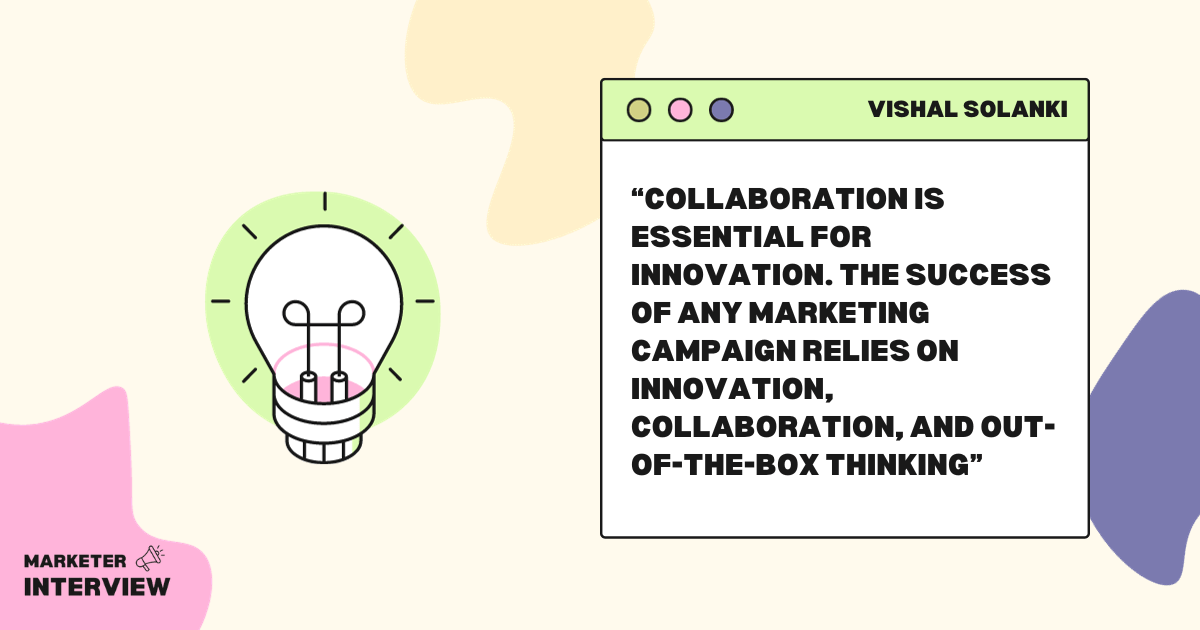
With your experience in mentoring and developing marketing professionals, what essential qualities do you look for when building a high-performing marketing team?
Building a high-performing marketing team is about assembling a group of individuals with solid skills and creating a harmonious and collaborative unit to deliver exceptional results.
When doing so, I look for qualities such as creativity, adaptability, a data-driven mindset, and a commitment to continuous learning. I also value team members working well in a fast-paced and dynamic environment, as marketing trends can change rapidly.
I carefully assess the qualities of an individual and aim to create a marketing powerhouse that can tackle challenges, adapt to changes, and consistently deliver outstanding results.
One challenging situation I encountered was a sudden and significant drop in organic traffic for a client due to a major search engine algorithm update.
To overcome this, we conducted an in-depth analysis of the update’s impact, made necessary website adjustments, and revised our content strategy.
It was a valuable lesson about adaptability and resilience, reinforcing the importance of staying updated with algorithm changes.
Tools and software play a pivotal role in modern marketing. Can you highlight a few go-to tools that have become integral to your daily workflow and why they’re essential?
A few of my go-to SEO tools include:
- Ahrefs for backlink analysis, site audit report
- Semrush for keyword research and site audit
- Google Analytics for tracking website performance
- Trello or Asana for project management
As the digital landscape evolves, what predictions do you have for the future of SEO and content marketing, and how do you prepare yourself and your team for these changes?
The digital landscape is in a state of perpetual evolution. As the head of the digital marketing team, it’s my responsibility to adapt to these changes and anticipate and embrace them.
I anticipate generative AI and machine learning will be more significant in content creation, personalization, and data analysis. Voice search and mobile optimization will continue to be crucial in providing rich search results.
My team and I are focusing on developing AI-driven content strategies, optimizing for voice search, and staying ahead of emerging trends through continuous education and experimentation to prepare for these changes. Adaptability and agility are crucial to thriving in the future of SEO and content marketing.
